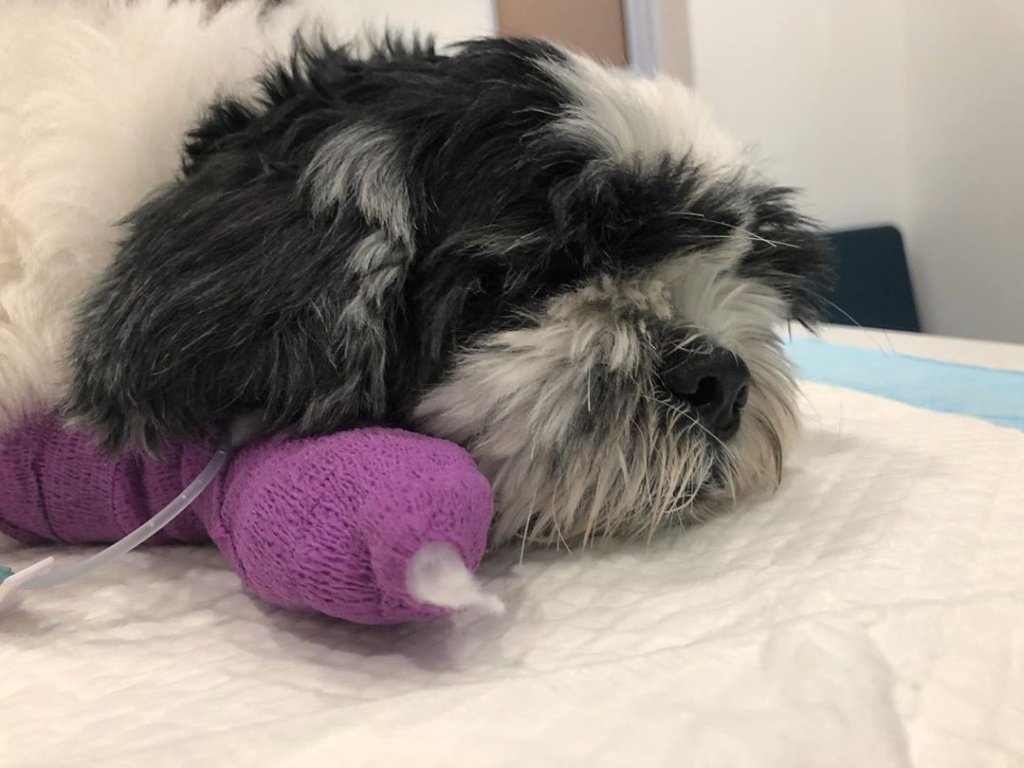The raw diet for dogs and cats has always been a controversial topic amongst pet owners.
Common misconceptions
Many who’s against it have formed or hearsay misconstrued perceptions such as (but not limited to) “Omg won’t my pet attack humans/animals if it consumes raw meat?!”; or “Isn’t there salmonella bacteria in raw meat?”; or “It’s not nutritionally balanced.”; etc. These misconceptions have often been debunked by professionals and raw feeders, and there are many available raw diet providers that have nutritional consultations and catered portions. However, these are still valid questions and worries, to an extent, – it is with good intent we worry – as most of us love our furbabies more than anything in the world.
Contrarily, we hear and/or see several success stories, on social media especially. Successful raw diet feeders rave about the benefits and evident changes, advocating and encouraging those who are apprehensive to make the move. In fact, I approached and sought advice from many friends/acquaintances made through Jr’s Instagram and pet community groups on Whatsapp & Telegram. Everyone I’ve spoken with was very kind and encouraging, none withheld tips and encouragements!
Not all pets thrive with a raw diet
There seems to be a lack of “failed” raw diet testimonies due to the fear of backlash and/or comments from insistent raw feeders. I felt like I couldn’t share Jr’s unsuccessful experience publicly because it felt like everyone else flourished from their transition to raw; and there was this impending anxiety that some raw feeders would disagree with the idea of an unsuccessful attempt. When Loki shared his unsuccessful experience and similar fears of speaking out, I felt so relieved!
Haha, it was a moment of slight disbelief, I realized that I wasn’t the only one and many others have probably experienced likewise. I’m glad I can now share my experience, I hope those who’ve had unsuccessful experiences with raw diets alongside pro-raw feeders see, it’s okay that it didn’t work out, no matter the reason and/or outcome – there’s no ‘one diet fits all strategy.
Our initial decision to try out a raw diet

I had actually considered transitioning Jr to a raw diet for a long period, I did extensive research and spoke with others for a year or so. I saw several success testimonials for dogs that faced long-term skin and coat issues, like Jr has struggled with dermatitis, yeast/bacterial infections, and more since puppyhood (which seems common with shih-tzus). Consecutively, Jr had an unfortunate incident last year which triggered a severe acute case of stomach inflammation and pancreatitis. He sought intensive treatment whilst inpatient in a veterinary hospital. After that incident, we maintained a low-fat diet but he still struggled with gastrointestinal issues like random soft stool or constipation and more.
With each success testimonial on my Instagram feed, with drastic before and after comparisons, the more my excitement grew and I was highly convinced it would work for Jr too. Every time I would research about the diet, speak to raw feeders, and scroll through success stories, my bias increasingly leaned towards pro-raw ideals. I was fascinated with its theories of feeding a primal diet which is supposedly most in-tuned with the psyche and biology of canines, positively impacting their health and wellbeing. With the information I’ve attained over a year, I was fully convinced so I decided to transition during the COVID-19 lockdown/circuit breaker period since I was able to closely monitor his behaviours and changes.
Transition and outcome
When I decided to transition, there were already difficulties communicating the benefits of raw to my family but I persisted and carried on with his diet transition. I heeded advice to slowly decrease the cooking time as he had been on a home-cooked diet. As usual, Jr started to get picky but he eventually ate the meat and offal. However, I noticed he vomited whenever he would eat the offal and he started to leave out certain offal parts like the kidney (fascinating, isn’t it, how their bodies notice what’s wrong?). After this, I decided to remove the offal and he stopped vomiting which was a huge relief.
[Haha, this part might be a bit TMI & graphic because I’m talking about Jr’s poop so, please skip to where I have indicated with an asterisk (*) if you’re uncomfortable!]
Although the vomiting stopped and he continued to eat most of the raw meat, his stool was very soft, which I knew was a common symptom during the transition but he seemed very uncomfortable and it persisted with lethargy which deeply concerned me. I had a bad gut feeling as his poop’s softness seemed too wet/watery with little to no solid pieces, much like bad diarrhea, unlike any other transitioning experience I’ve seen/heard of.
*
I was confused and stressed, as I was following the advised procedures, portions and steps but everything was going downhill and I felt extremely guilty for causing distress onto Jr. With the consistent symptoms of soft stool, discomfort and lethargy, I decided to switch back to his previous home-cooked food diet and he immediately felt better after two meals. Hence, our raw diet journey was, evidently, unsuccessful and I learnt that it wasn’t the right fit for Jr. There could’ve been a correlation to his previous GI issues, or maybe his body just wasn’t receptive, or maybe other reasons.
Afterthoughts
My experience hasn’t negatively impacted my perception of the raw diet, I have actually learnt to have unbiased viewpoints. I’m still glad I spent the time on thorough research but I now realise the lack of proper scientific studies on this topic. Understandably so, as studies have specific requirements and controlled environments. And it’s not to say I disagree with the raw diet theories now, I still think there’re truths to its theories and it could benefit many pets! Their results speak volumes for their advantages. Nonetheless, I think it’s essential for pet owners, who are looking into the raw diet, to remain unbiased and keep in mind the possibility of ‘failing’ too.
Here I conclude, is the raw diet too good to be true? No. Is it dangerous? No. Is it the only “right”/“best” diet for dogs and cats? Not necessarily. Will it turn your pet into a blood-thirsty monster? LOL no, eating raw meat ≠ bloodlust! Pets are aggressive due to abusive environments, lack of training, etc.
I genuinely believe there’s no ‘one diet fits all’ solution, as I’ve mentioned. The raw diet has clearly benefited many pets and that’s amazing! On the other hand, it is okay to not have had a successful experience. The raw diet wasn’t the first that didn’t work for us, kibbles and (most) wet foods also didn’t work well for Jr as he is allergic to chicken but many times ingredient lists with “poultry” or “meat flavours” etc. contain chicken byproducts. However, that doesn’t mean it wouldn’t work for others, there are many pets who thrive on kibbles and wet food diets too. Hence, we should be open to sharing negative/unsuccessful experiences (with all types of diets) and hold back judgment because everybody is different! ☺️
The above article is written by the hooman of @jr.boyboy.
